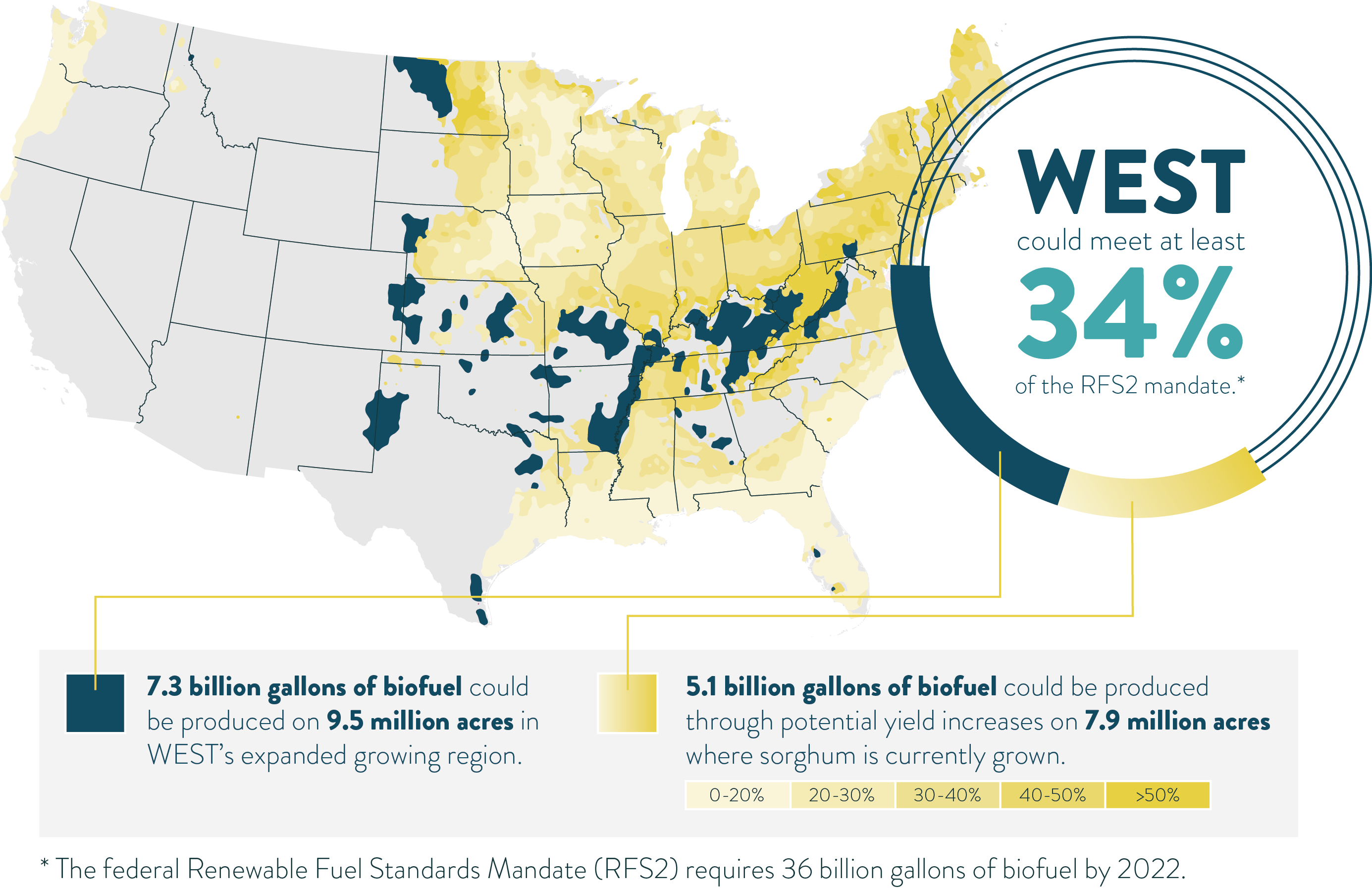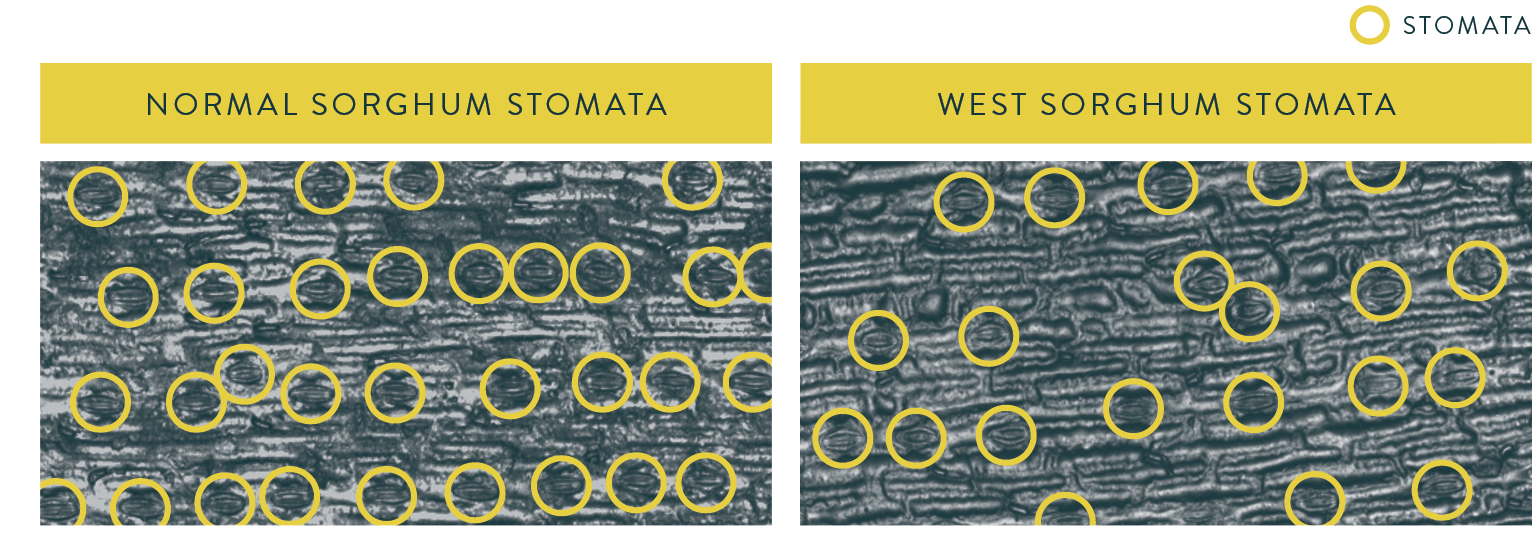Water Efficient Sorghum Technologies (WEST) worked to develop crops that require less water to improve agricultural productivity, sustainability, and resiliency.
Today, one acre of energy sorghum requires an Olympic-sized swimming pool of water to produce 9 tons of biomass, which can be used to make clean-burning ethanol. Mechanistic models suggest we can reduce sorghum water use by 40 percent and increase productivity by nearly 30 percent to 11 tons.
The WEST project’s goal was to produce more biomass with less water—expanding the growing region of this bioenergy crop by tens of millions of acres without irrigation.

To understand the genetic control of water-use efficiency, WEST screened 870 sorghum varieties. We identified two targets for improvement: 1) reduce the number of microscopic pores in the leaf that allow water to escape and 2) conserve water by promoting photosynthesis in the humid lower canopy.
Stomata are plant gatekeepers of gas exchange. When open, stomata allow carbon dioxide to enter the plant to fuel photosynthesis, but at the same time, water escapes via the process of transpiration. WEST has developed sorghum with fewer stomata, improving water-use efficiency by as much as 25 percent.

Plants evolved widespread, shady canopies to prevent competitors from stealing their resources. But now crops need more vertical leaves to conserve water by promoting photosynthesis in the humid lower canopy. WEST developed more erect plants with a 20 to 30-degree change in leaf angle, improving leaf water-use efficiency by 25 percent in the upper leaves.
We have produced many transgenic events with these improvements that will aid in the development of commercially available water-efficient sorghum varieties. By devoting viable lands to sorghum developed by the WEST project, we could theoretically replace about 12.4 billion gallons of fossil fuels with ethanol, a renewable and environmentally sustainable source of fuel.
WEST was funded from 2015 - 2019 by a grant from the Advanced Research Projects Agency-Energy (ARPA-E). For more information about the WEST project and current research efforts, please contact our project director Andrew Leakey.